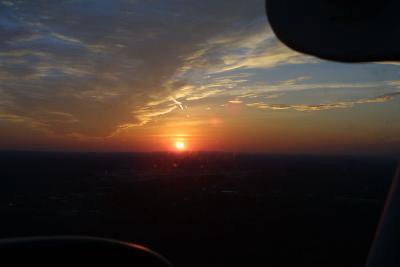Back to school
They say a private pilot certificate is a license to learn. Any rating really is a portal into further education and learning.
For weekend pilots, this can come through biennial flight reviews, instrument proficiency checks or new ratings. The more disciplined recreational fliers will also study to deepen their knowledge, take occasional instruction and make time to practice maneuvers and emergency procedures.
At the airlines, we are lucky to have recurrent training programs and proficiency checks that pilots attend once or twice a year, depending on whether they are first officers or captains. These are designed to knock the rust off the many things we don't get to practice every day on the line, refresh our systems and operational knowledge and generally ensure that we are proficient in all areas.
Such programs draw from thousands and thousands of flight hours, experiences of company pilots and those of others and other airlines and provide a great way for us to improve ourselves and do our jobs better.
It's been almost a year since I joined my airline, so I headed down to Dallas this week for three days of recurrent ground school and a checkride on day four.
While I first thought the time would have been better spent at home with my wife, especially in light of a very hectic recent schedule, training was a great experience and a good motivator to delve back into my manuals.
Day two, particularly, provided us with a thorough review of systems.
During initial training, my classmates and I crammed a lot of that knowledge into our brains through rote memorization. Because only few of us had ever flown jets, much of the material and logic behind the airplane's systems was new and had to be committed to memory in that way.
This time around, however, with short of a year in the airplane under my belt, I was better able to assimilate the finer details of the material we covered and garner a true understanding of why things work they way they do and why we do things a certain way.
The instructors did a fabulous job mixing events that happened on the line with the book material, giving us a true practical take on our procedures and encouraging some spirited discussion and the inevitable Monday morning quarterbacking.
I'd like to say I prepared well for training, but in reality I could have done a lot better. With only limited time on my hands, I reviewed aircraft limitations and systems and left some of the typically unused profiles to the night before my checkride.
While they did come back quite fast, I realized I wasn't learning them to pass a simulator ride. An engine failure could happen for real, as could a single-engine go-around. So I left Dallas with the resolve to not let such vital knowledge grow stale, no matter how unlikely it would be that I would need to use one of those procedures on the line.
Day four of my stay in Dallas was probably the most stressful. I awoke early to meet with the check airman and we proceeded, with little fanfare, to the oral portion of the checkride. No major hick-ups there. He stumped me on a couple of things and did a great job at instructing me on those points.
I took a break while the captain whom I would take the ride with took my place in the hot seat. As I walked down the hall in search of a fresh cup of coffee, another first officer I'd studied with told me he'd failed his oral. He was on his way home and would probably be back in a few days to give it another shot. I was floored, since this kid was sharp as a tack and knew the airplane very well.
My dismay continued when I returned to the briefing room. My captain told me he too had botched his oral and was done for the day. Rather than flying the sim with him, I'd just be me and the check airman.
Now the nerves really began to build.
The arrangement posed some interesting logistical problems since the examiner had to perform his duties as a non-flying pilot and run the simulator at the same time. It meant a few missed calls from the left seat, an increased workload for me and a little more time spent alone up front dealing with failures while he fiddled with buttons in the back, but the disruption made the emergencies feel a little more real.
In spite of it all, I somehow managed to pass the ride.
I never thought I'd say this, but my visit to the schoolhouse really was refreshing.



3 Comments:
Congratulations. Sucks to think we'll never have a break from the stress and anxiety of taking check rides.
I used to think that too, but it actually keeps you on your toes. I think it's a good system. I'm sure that in time the stress goes away too!
I agree. Although the stress before a checkride isn't always pleasant, it's a good time to improve your skills and knowledge.
Post a Comment
<< Home